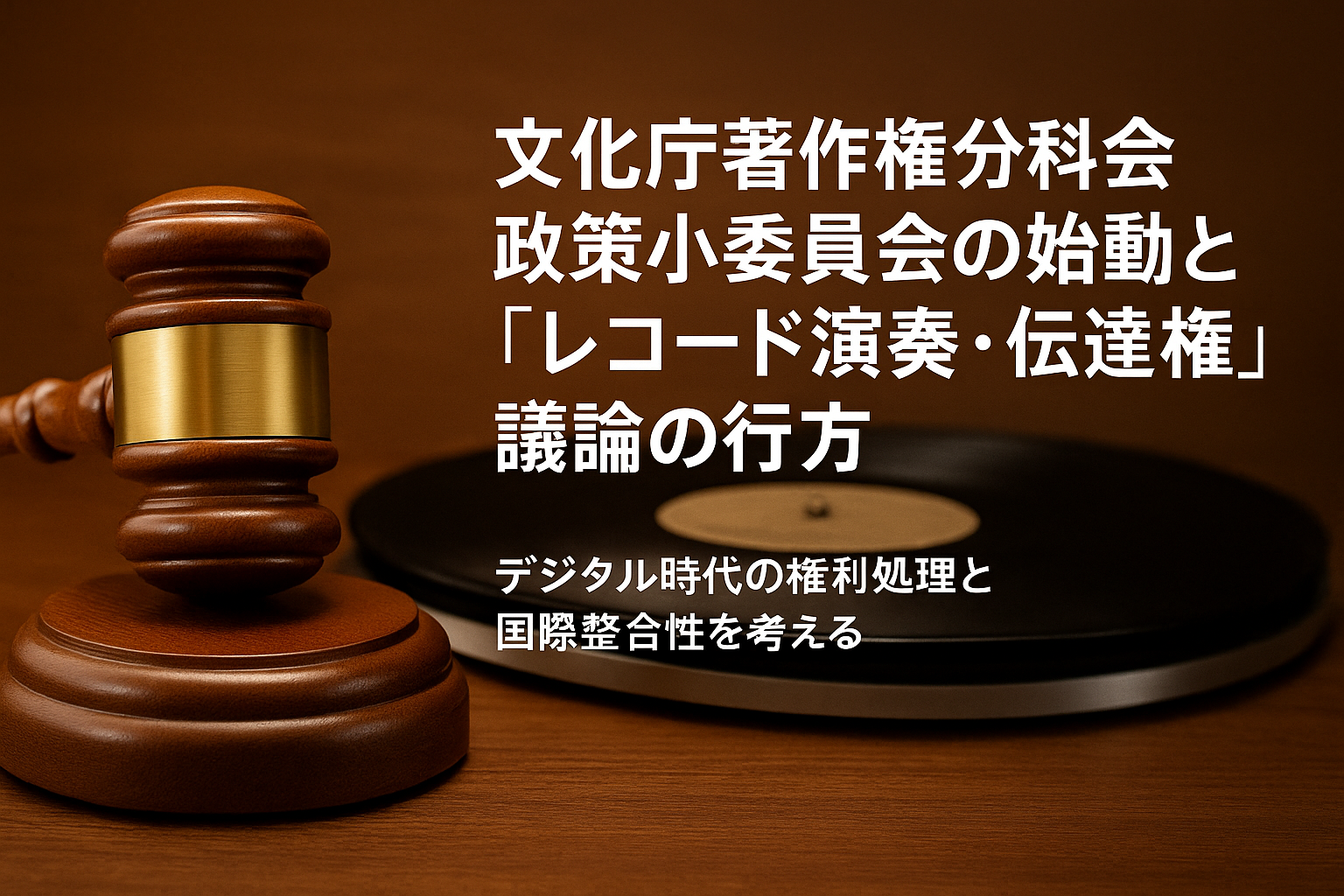On August 19, 2025, the Agency for Cultural Affairs held the first meeting of the Copyright Subcommittee’s Policy Subcommittee under the Council for Cultural Affairs. At this meeting, a new chair was appointed, and the agenda items and the establishment of working teams for this term were confirmed. Among these, the topic that drew particular attention was the issue of “record performance and transmission rights.” This subject is a critical issue directly tied to the digital transformation of the music industry and the global framework for rights management.
What Are Record Performance and Transmission Rights?
“Record performance and transmission rights” refer to the rights granted when recorded music is performed, broadcast, or distributed to the public. Traditionally, the focus was on use within “physical spaces” such as broadcasters or concert venues. However, with the expansion of new modes of use such as streaming and live broadcasts on social media, there is growing pressure to reconsider the scope of application and the mechanisms of rights management.
Challenges of the Digital Transition
In recent years, the music industry has faced the following challenges:
- The spread of streaming
Subscription-based distribution has become the global standard, and users routinely “transmit” recordings in their daily lives. Yet, persistent doubts remain as to whether rights holders are receiving adequate compensation.
- Growth of secondary use
Recordings are now frequently used in individually generated content, such as videos on social media and live streaming, creating significant complexity in rights management.
- International consistency
Japan’s unique rights framework risks creating discrepancies with overseas markets, potentially affecting the revenue security of artists and rights holders.
In light of these developments, institutional review and the establishment of guidelines at the Agency for Cultural Affairs have become urgent tasks.
Future Outlook
The current deliberations go beyond the simple question of whether or not to expand the scope of rights. The real focus lies in how to achieve both “promotion of music use” and “ensuring fair compensation for rights holders.”
Potential directions include:
- Establishing a comprehensive licensing system to improve user convenience
- Examining new rules for rights management with the rise of AI-generated music in mind
- Building an international rights management framework with global coordination in view
The debate over “record performance and transmission rights” will not only impact the music industry but also extend to the creative activities and streaming culture of the general public. While copyright reform requires long-term consideration, the discussions held by this Policy Subcommittee could play a key role in shaping the foundations for music distribution suited to the digital era. It will be essential to continue monitoring how these deliberations evolve.

